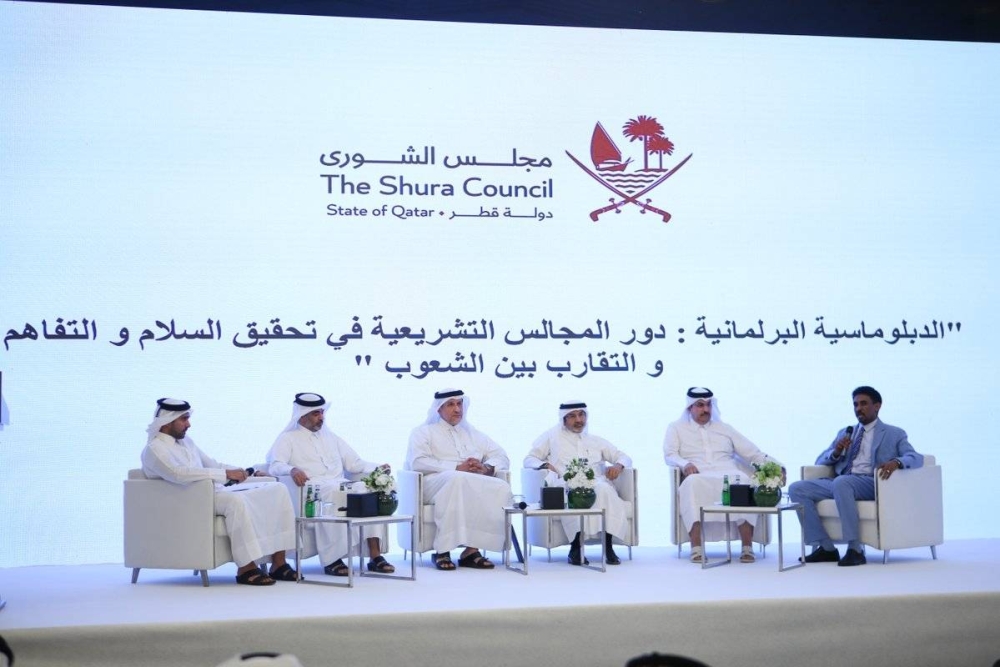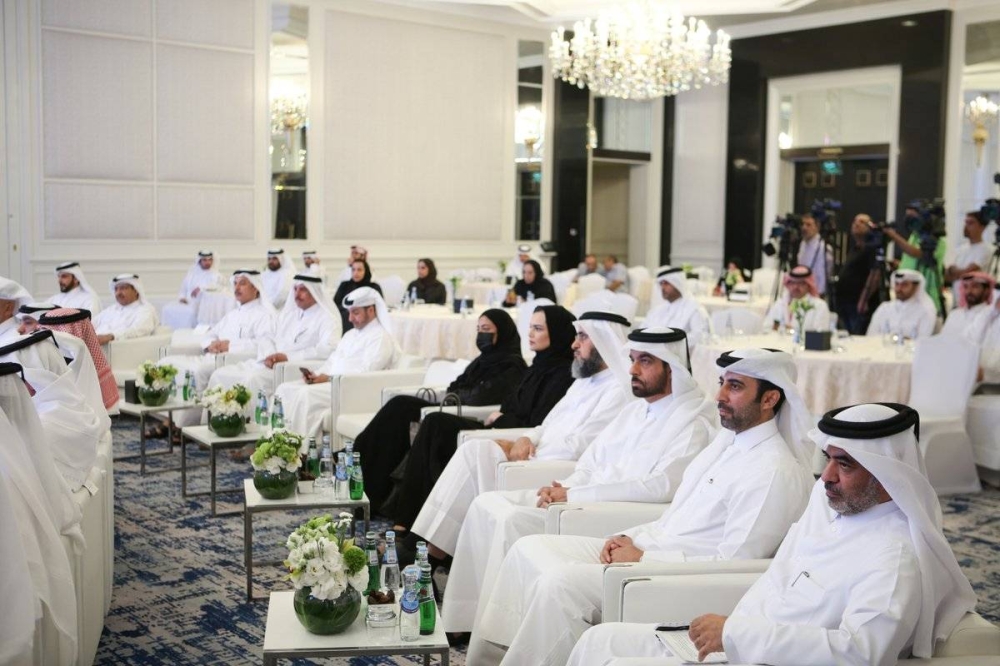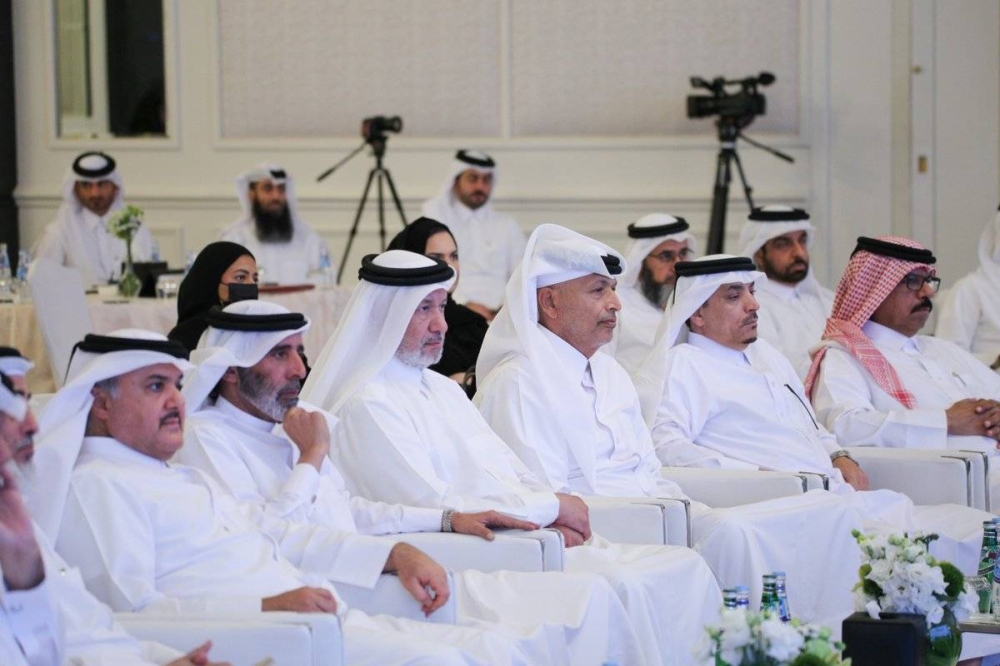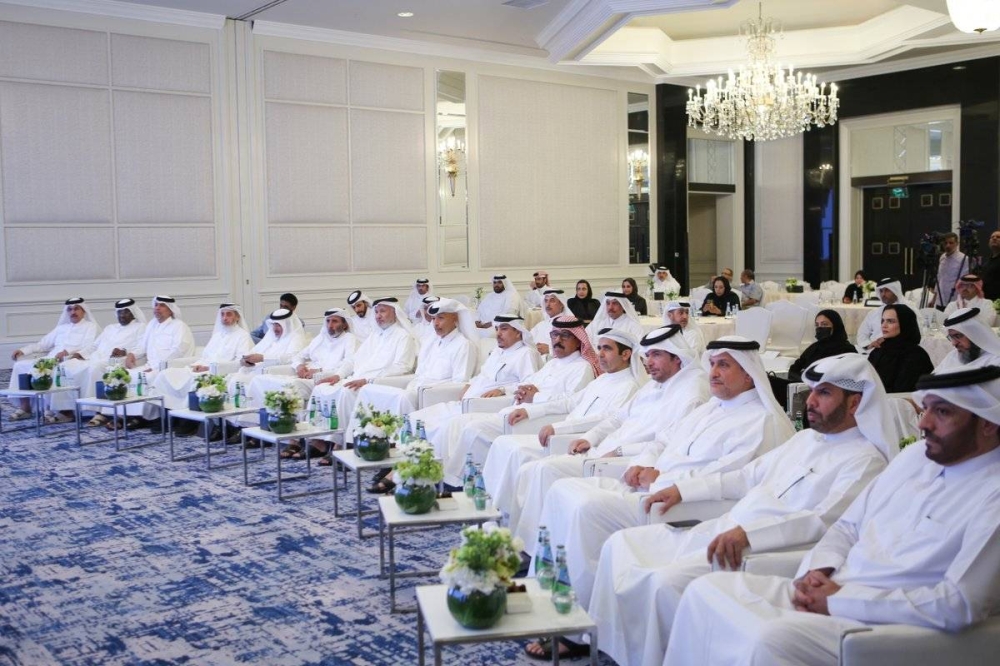The Shura Council organised on Tuesday a seminar on the occasion of the International Day of Parliamentarism. The seminar highlighted the role of parliamentary diplomacy in strengthening relations between countries, addressing global crises and challenges, and promoting peace and understanding among peoples.
HE the Speaker of the Shura Council Hassan bin Abdullah Al Ghanim attended the seminar, which was part of the council's celebration of the International Day of Parliamentarism, observed on June 30 each year. It was titled "Parliamentary Diplomacy: The Role of Legislative Councils in Achieving Peace, Understanding, and Rapprochement Among Peoples."
The panel of speakers included HE Mohammed bin Mahdi Al Ahbabi, HE Yousef bin Ali Al Khater, HE Abdullah bin Nasser bin Turki Al Subaie, and HE Issa bin Ahmed Al Nasr, members of the Shura Council, along with Dr. Bahaeldin Makkawi, Head of the International Affairs Department at the College of Arts and Sciences, Qatar University.
The speakers emphasised that in addition to its legislative and oversight roles, the Shura Council, through parliamentary diplomacy, plays an active role in strengthening Qatar's foreign relations, fostering friendships and cooperation with other countries and peoples, affirming its principles and positions on various global issues, and supporting efforts to achieve peace and understanding among nations and enhance Qatar's interests in coordination with official diplomacy.
They highlighted successful examples of the Shura Council's parliamentary diplomacy in various regional and international forums, including influencing biased and unfair decisions and supporting resolutions that serve Arab and Islamic interests.
HE Abdullah bin Nasser Al Subaie pointed out that legislative councils play a crucial role in monitoring government policies and enacting laws that enhance international peace and security. He also noted their role in building bridges between peoples through parliamentary visits and meetings.
He also discussed the significant role of parliament in enhancing cooperation among nations and between parliaments to reach common understandings on global issues and challenges, and facilitating official diplomacy to establish strong and successful international relations.
HE Al Subaie, who is the Vice President of the Parliamentary Assembly of the Mediterranean (PAM), touched on the role played by the Shura Council through its membership in this parliamentary forum, and through parliamentary diplomacy, to mobilize positions to support issues that concern Arabs and Muslims and support international efforts to confront various challenges.
HE Issa bin Ahmed Al Nasr spoke about the objectives of parliamentary diplomacy and its role in promoting international peace and security through constructive dialogue among peoples. He highlighted the flexibility of parliamentary diplomacy compared to official diplomacy and its role in correcting official stances and clarifying misunderstood viewpoints, thus enhancing the credibility of countries' foreign policies.
HE Mohammed bin Mahdi Al Ahbabi focused on the role of the Inter-Parliamentary Union (IPU) in activating parliamentary diplomacy, enhancing dialogue and cooperation between different parliaments, and supporting international efforts to resolve conflicts and promote global peace through the IPU's Committee on Peace and International Security.
HE Yousef bin Ali Al Khater addressed the challenges and opportunities facing parliamentary diplomacy in the modern era, including geopolitical changes, international conflicts, differing parliamentary systems, and rapid technological advancements. He emphasized the need to turn these challenges into opportunities through building bridges of dialogue and exchanging views among parliaments.
Regarding the contribution of parliaments in enhancing cultural understanding among nations, he clarified that this is accomplished through active parliamentary participation in international conferences, forums, and the IPU activities. Geopolitical changes and challenges necessitate an active role and a presence on the international political map, he stated.
In this context, he addressed the role of parliamentary friendship groups, agreements, and memoranda of understanding, which serve as factors in promoting cooperation and building bridges of understanding and rapprochement between nations.
Dr. Bahaeldin Makkawi elaborated on the concept of parliamentary diplomacy, distinguishing it from official diplomacy, and how parliamentarians can use this concept to enhance international relations and contribute to global peace and security.
The speakers agreed that parliamentary diplomacy represents a vital platform for dialogue, through which solutions to global issues can be generated. They underscored the importance of cooperation between the legislative and executive branches to succeed in parliamentary diplomacy and unify efforts to achieve sustainable development goals and promote human rights.
The seminar began with a recorded speech by HE IPU President Dr. Tulia Ackson, who emphasized the values upon which the IPU was founded, stating that these values are more important today than ever before, as the world faces a range of complex global challenges requiring urgent collective action and international cooperation.
The world celebrates the International Day of Parliamentarism on June 30 each year, marking the founding of the Inter-Parliamentary Union in 1889.




